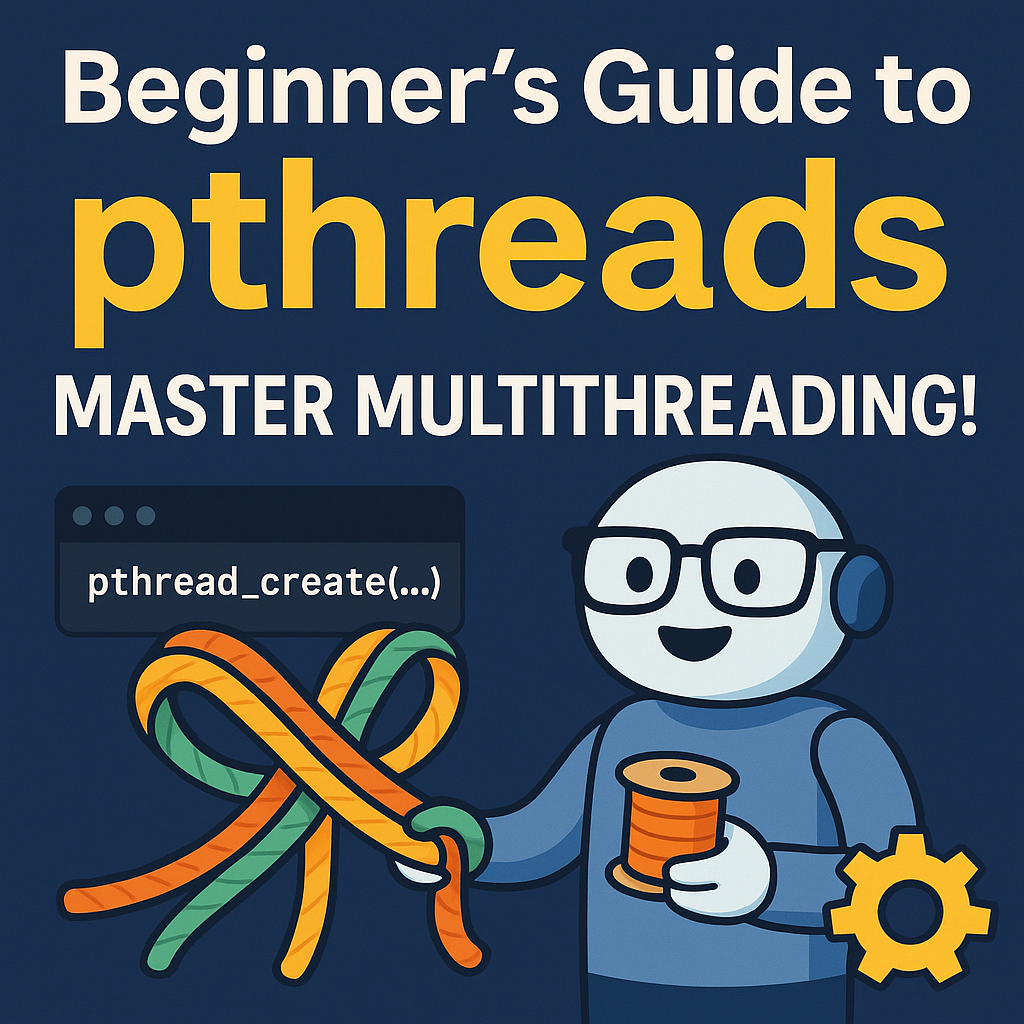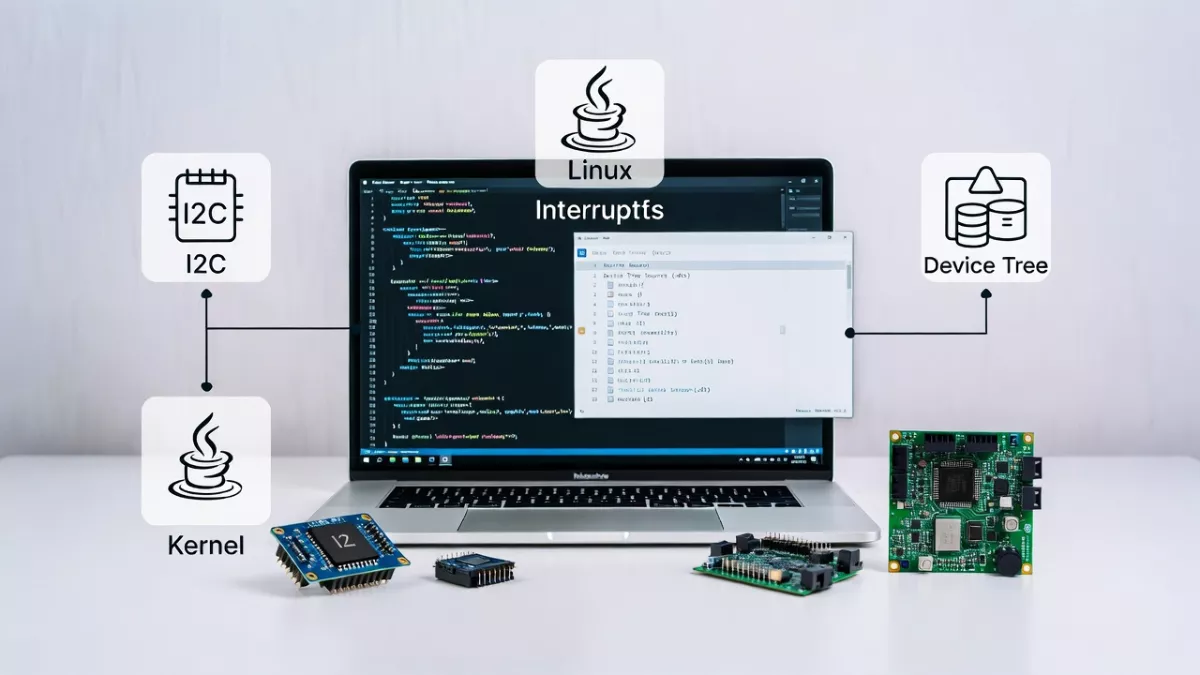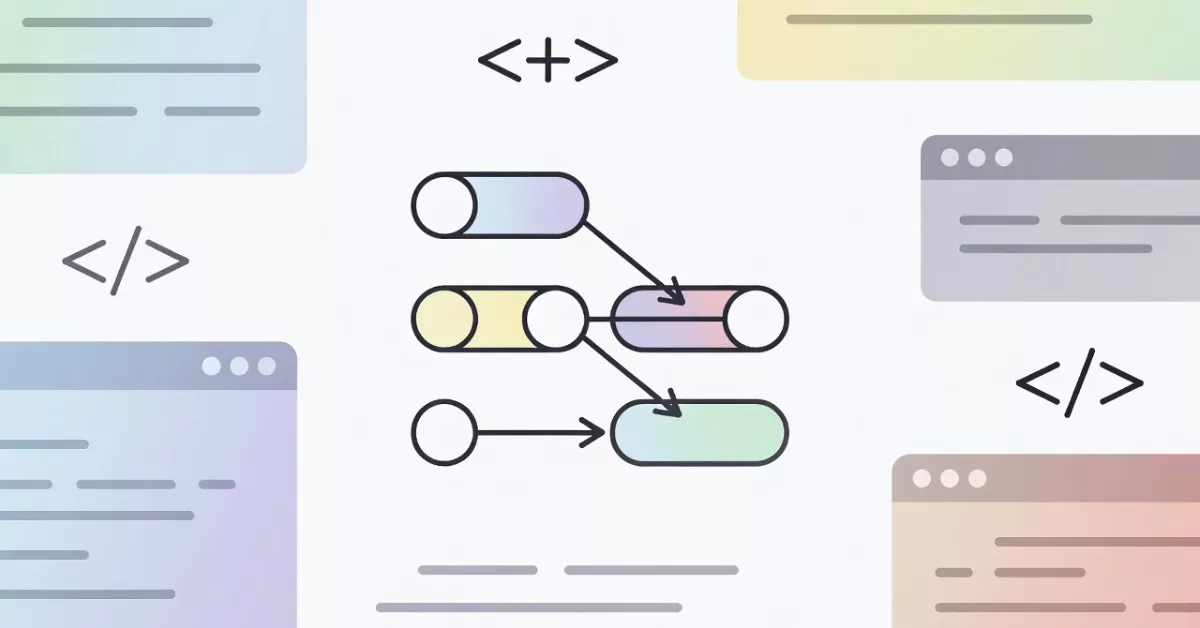pthreads tutorial explains pthreads (POSIX threads) in simple, beginner-friendly language. You’ll learn what threads are, why they’re useful, and how to create them using the pthread library in C. The article covers basic thread creation, joining, passing data between threads, and avoiding common issues like race conditions. It also includes example programs and common interview questions to help you feel confident using pthreads in real-world coding or interviews.
What Are Threads?
Imagine your computer running several tasks at once — like downloading a file, updating the screen, and playing music. Threads are the “mini-programs” inside a single process that let you do multiple tasks at the same time.
- A process has its own memory space.
- A thread shares memory space with other threads in the same process.
Threads help programs:
✅ run faster on multi-core CPUs
✅ stay responsive (e.g. in apps with user interfaces)
✅ manage parallel tasks (e.g. computations, I/O)
What is pthread?
pthreads (POSIX threads) is a library in C/C++ on Unix-like systems (Linux, macOS, etc.) that helps you create and manage threads.
- Defined in pthread.h
- Functions start with
pthread_
How to Create a Thread
Here’s the simplest pthread program:
#include
#include
void* myThreadFunction(void* arg) {
printf("Hello from the new thread!\n");
return NULL;
}
int main() {
pthread_t threadId;
// Create a new thread
pthread_create(&threadId, NULL, myThreadFunction, NULL);
// Wait for the thread to finish
pthread_join(threadId, NULL);
printf("Back in main thread.\n");
return 0;
}
How this works:
✅ pthread_create(...) creates a thread and runs myThreadFunction in it.
✅ pthread_join(...) waits until the thread finishes.
pthread_create – Function Details
int pthread_create(
pthread_t *thread, // Thread ID output
const pthread_attr_t *attr, // Attributes (can be NULL)
void *(*start_routine)(void *), // Function the thread runs
void *arg // Argument passed to that function
);
Example:
pthread_create(&threadId, NULL, myThreadFunction, NULL);
pthread_join
Once a thread starts, the main thread might finish too early. We don’t want the program to exit while other threads are still running. So, we join the thread:
pthread_join(threadId, NULL);
This waits until the thread is done.
Passing Data to Threads
Threads often need data. You can pass arguments via the void* argument:
#include
#include
void* printNumber(void* arg) {
int num = *(int*)arg;
printf("Thread received number: %d\n", num);
return NULL;
}
int main() {
pthread_t tid;
int val = 42;
pthread_create(&tid, NULL, printNumber, &val);
pthread_join(tid, NULL);
return 0;
}
Threads Share Memory!
Unlike processes, threads share global variables and heap memory.
⚠️ Danger: Two threads writing to the same variable at the same time = Race Condition!
Synchronization with Mutexes
Mutex = Mutual Exclusion. It prevents simultaneous access.
Example:
#include
#include
pthread_mutex_t lock;
void* myThread(void* arg) {
pthread_mutex_lock(&lock);
// Critical section
printf("Thread in critical section\n");
pthread_mutex_unlock(&lock);
return NULL;
}
int main() {
pthread_t tid;
pthread_mutex_init(&lock, NULL);
pthread_create(&tid, NULL, myThread, NULL);
pthread_join(tid, NULL);
pthread_mutex_destroy(&lock);
return 0;
}
Other Useful pthread Functions
| Function | Description |
|---|---|
pthread_exit() | End a thread voluntarily |
pthread_self() | Get the current thread ID |
pthread_mutex_init() | Initialize a mutex |
pthread_mutex_lock() | Lock a mutex |
pthread_mutex_unlock() | Unlock a mutex |
pthread_mutex_destroy() | Free mutex resources |
Advantages of pthreads
✅ Speed — threads can run concurrently.
✅ Shared memory — no need for complex communication like pipes or sockets.
✅ Lightweight — creating threads costs less than creating processes.
pthread Interview Questions
Here are some beginner-to-intermediate interview questions on pthreads:
Q1. What is the difference between a process and a thread?
- Process: Separate memory space, separate code, own resources.
- Thread: Shares memory and resources with other threads in same process.
Q2. What is pthread?
A POSIX standard library in C/C++ for creating and managing threads on Unix-like systems.
Q3. How do you create a thread using pthread?
Using pthread_create:
pthread_create(&tid, NULL, myThreadFunction, NULL);
Q4. How can you wait for a thread to finish?
By calling:
pthread_join(threadId, NULL);
Q5. Why do we need synchronization primitives like mutexes?
Because threads share memory. To avoid race conditions when two threads access or modify the same data]\\][]\
Q6. What is a race condition?
When two or more threads read or write shared data at the same time, leading to unpredictable results.
Q7. What’s the purpose of pthread_mutex_lock and pthread_mutex_unlock?
They lock/unlock a mutex so that only one thread can enter a critical section at a time.
Q8. Can you pass arguments to threads in pthread?
Yes! Use the void* arg parameter in pthread_create to pass data.
Q9. What happens if you don’t call pthread_join?
The main thread might exit before other threads finish. This may terminate the whole process before threads complete their work.
Q10. What is a deadlock?
When two or more threads each hold a lock and wait forever for each other to release it.
How to Avoid Race Conditions
What is a Race Condition?
A race condition happens when:
- Two or more threads access the same variable or data at the same time
- At least one of them writes to it
Result: The outcome depends on who “wins the race” — i.e. which thread runs first. This causes bugs that happen randomly.
Example of a race condition:
#include
#include
int counter = 0;
void* increment(void* arg) {
for (int i = 0; i < 100000; i++) {
counter++;
}
return NULL;
}
int main() {
pthread_t t1, t2;
pthread_create(&t1, NULL, increment, NULL);
pthread_create(&t2, NULL, increment, NULL);
pthread_join(t1, NULL);
pthread_join(t2, NULL);
printf("Final counter value: %d\n", counter);
return 0;
}
Expected output: 200000
Actual output: Sometimes less than 200000!
How to Avoid Race Conditions
Here’s how you can avoid race conditions in pthreads:
✅ 1. Use Mutexes
A mutex lets only one thread enter a critical section at a time.
Example:
#include
#include
int counter = 0;
pthread_mutex_t lock;
void* increment(void* arg) {
for (int i = 0; i < 100000; i++) {
pthread_mutex_lock(&lock);
counter++;
pthread_mutex_unlock(&lock);
}
return NULL;
}
int main() {
pthread_t t1, t2;
pthread_mutex_init(&lock, NULL);
pthread_create(&t1, NULL, increment, NULL);
pthread_create(&t2, NULL, increment, NULL);
pthread_join(t1, NULL);
pthread_join(t2, NULL);
pthread_mutex_destroy(&lock);
printf("Final counter value: %d\n", counter);
return 0;
}
Now, output is reliably 200000.
✅ 2. Use Read-Write Locks
If many threads read and only some write, use read-write locks (pthread_rwlock).
- Multiple readers allowed.
- Writers get exclusive access.
✅ 3. Use Atomic Operations
For simple variables, you can use atomic operations instead of mutexes.
Example (using GCC atomic built-ins):
__sync_fetch_and_add(&counter, 1);
These are lock-free and faster.
✅ 4. Minimize Shared Data
- Avoid sharing data between threads if you can.
- Give each thread its own variables.
- Less sharing → fewer race conditions!
✅ 5. Proper Thread Join / Synchronization
Always join threads before accessing shared results.
pthread_join(t1, NULL);
pthread_join(t2, NULL);
Otherwise, main might read data while threads are still changing it.
✅ 6. Condition Variables (Advanced)
When threads wait for some condition to become true, combine mutexes with condition variables for safe signaling.
Simple Rule
“Protect all shared data with synchronization.”
Any time multiple threads:
- Read and write shared variables
- Modify global variables
- Update shared structures
→ Use mutexes or other mechanisms.
How To Spot Race Conditions?
They often show up as:
- Random crashes
- Wrong calculation results
- Bugs that “sometimes” happen
FAQ – Beginner-Friendly Guide: Understanding pthreads
Q1. What are pthreads?
Answer:
pthreads stands for POSIX threads. It’s a library in C/C++ used to create and manage threads on Unix-like systems like Linux and macOS.
Q2. Why should I use threads?
Answer:
Threads help your program do multiple things at once, like:
- Handling many tasks faster
- Keeping apps responsive
- Using multi-core CPUs efficiently
Q3. What’s the difference between a process and a thread?
Answer:
- A process has its own memory space.
- A thread shares memory with other threads in the same process.
Threads are lighter and faster to create than processes.
Q4. How do I create a thread in pthread?
Answer:
Use pthread_create. Example:
pthread_create(&threadId, NULL, myFunction, NULL);Q5. What is pthread_join?
Answer:pthread_join waits for a thread to finish before moving on. It prevents your program from ending too soon while threads are still working.
Q6. Can I pass data to threads?
Answer:
Yes! You can pass a pointer as an argument to your thread function.
Example:
pthread_create(&tid, NULL, myFunction, &myData);
Q7. What is a race condition?
Answer:
A race condition happens when two threads change the same data at the same time, causing unpredictable results.
Q8. How do I avoid race conditions in pthreads?
Answer:
Use a mutex to lock shared data so only one thread can change it at a time.
Q9. Do threads share variables?
Answer:
Yes. Threads share:
- Global variables
- Heap memory
Each thread has its own stack for local variables.
Q10. Is pthread available on Windows?
Answer:
pthreads is mainly for Unix-like systems. On Windows, you might use:
- Windows Threads API
- Libraries like pthreads-win32
- C++11’s
Tutorials & Guides
- Multithreaded Programming (POSIX pthreads Tutorial) – randu.org
A comprehensive guide covering thread synchronization, mutexes, and practical examples to get you started with pthreads. - Multi-Threaded Programming With POSIX Threads – Villanova University
A well-structured tutorial introducing POSIX threads, including examples and explanations suitable for beginners. - POSIX Threads Programming – LLNL HPC Tutorials
A detailed guide from Lawrence Livermore National Laboratory, covering thread creation, synchronization, and more.
🎥 Video Tutorials
- Introduction To Threads (pthreads) | C Programming Tutorial
A beginner-friendly video tutorial that introduces pthreads in C, explaining the basics of thread creation and management.
📚 Reference Materials
- POSIX Threads – Wikipedia
A concise overview of POSIX threads, their history, and how they fit into modern programming. - POSIX Threads in OS – Tutorialspoint
An accessible explanation of POSIX threads and their role in operating systems, ideal for newcomers.
You can also Visit other tutorials of Embedded Prep
- Multithreading in C++
- Multithreading Interview Questions
- Multithreading in Operating System
- Multithreading in Java
- POSIX Threads pthread Beginner’s Guide in C/C++
- Speed Up Code using Multithreading
- Limitations of Multithreading
- Common Issues in Multithreading
- Multithreading Program with One Thread for Addition and One for Multiplication
- Advantage of Multithreading
- Disadvantages of Multithreading
- Applications of Multithreading: How Multithreading Makes Modern Software Faster and Smarter”
Mr. Raj Kumar is a highly experienced Technical Content Engineer with 7 years of dedicated expertise in the intricate field of embedded systems. At Embedded Prep, Raj is at the forefront of creating and curating high-quality technical content designed to educate and empower aspiring and seasoned professionals in the embedded domain.
Throughout his career, Raj has honed a unique skill set that bridges the gap between deep technical understanding and effective communication. His work encompasses a wide range of educational materials, including in-depth tutorials, practical guides, course modules, and insightful articles focused on embedded hardware and software solutions. He possesses a strong grasp of embedded architectures, microcontrollers, real-time operating systems (RTOS), firmware development, and various communication protocols relevant to the embedded industry.
Raj is adept at collaborating closely with subject matter experts, engineers, and instructional designers to ensure the accuracy, completeness, and pedagogical effectiveness of the content. His meticulous attention to detail and commitment to clarity are instrumental in transforming complex embedded concepts into easily digestible and engaging learning experiences. At Embedded Prep, he plays a crucial role in building a robust knowledge base that helps learners master the complexities of embedded technologies.








CreatBot D600 Pro 2 is a advanced 3D printing device designed for engineers demanding precision, dependability, and versatility in 3D printing devices. As part of the D600 series, it incorporates a large build volume, advanced dual extruder technology, and high-performance features suitable for industrial use and complex materials.
CreatBot D600 Series Overview
The CreatBot D600 and D600 Pro establish benchmarks for large-scale 3D printers solutions. With a build volume of 600 ? 600 ? 600 mm, these professional large format 3D printers cater to a wide range of industrial 3D printing demands, from large model prototyping to end-use production. The D600 pro series and the latest D600 Pro2 HS introduce further improvements in performance and material compatibility.
Main Features and Benefits
Industrial-Grade Large Build Volume
Build volume: 600 ? 600 ? 600 mm
Ideal for large-scale 3D printer projects and industrial 3D printing
Supports technical materials and intricate models
Dual Extruder System and High-Temperature Printing
4th generation dual 1.75mm extruders for multi-material printing
Right and left extruder design for flexible printing process
Supports high performance 3D materials, including PLA, nylon, carbon fiber, and more
Maximum nozzle temperature: up to 420°C (high temperature)
Heated build chamber for high-performance applications
Precision, Speed and Reliability
Professional 3D print quality with accurate layer resolution
Advanced motion system for high-speed printing and robust performance
Consistent printing speed up to 120 mm/s
Reliable operation for continuous industrial use
Compatible Materials and Filaments
Wide Filament Compatibility
Works with a broad spectrum of filament types: PLA, ABS, PC, PETG, PVA, nylon filament, carbon fiber, and more
Designed for technical materials and functional prototyping
Advanced dual extruder 3d printer enables multi-material and soluble support printing
Uses: Prototyping & Manufacturing
The CreatBot D600 Pro 2 model and D600 Pro 3D printer serve a diverse set of applications:
Rapid prototyping and large format 3D print models
Functional parts for automotive, aerospace, and engineering
Tooling, jigs, and fixtures for industrial production
Art, architecture, and creative projects requiring large industrial 3D printing
Specs
Models: CreatBot D600 Pro 2, D600 Pro, D600
Build size: 600 ? 600 ? 600 mm
Extruders: Dual extruder, 4th generation 1.75mm dual extruders and hotends
Maximum extruder temperature: 420°C
Bed temperature: up to 100°C
Filament diameter: 1.75 mm
Layer resolution: 0.05 – 0.3 mm
Supported filament: PLA, ABS, PC, PETG, PVA, nylon, carbon fiber, engineering-grade materials
Printing speed: up to 120 mm/s
Chamber: Heated, for improved material properties
Control: Touchscreen interface
Supported file types: STL, OBJ, AMF
Comparison: D600, D600 Pro, and D600 Pro 2
Key Differences
D600 model: Entry-level industrial large scale 3d printer for basic applications
D600 Pro model: Enhanced with heated chamber, auto bed leveling, and wider material support
D600 Pro 2 model (pro version): Adds higher printing speed, improved reliability, and HS (high speed) configuration
Other CreatBot Models
CreatBot D1000 for even larger build volumes
CreatBot lineup includes industrial and professional 3d printer solutions
Frequently Asked Questions (FAQ)
What materials can the CreatBot D600 Pro 2 print?
The D600 Pro 2 is compatible with a wide range of filament including PLA, ABS, PETG, PC, nylon, carbon fiber, and other engineering-grade materials.
Maximum Build Volume of D600 Pro 2
The printing volume is 600 ? 600 ? 600 mm, supporting large model and industrial 3d printing needs.
Dual Extruder and High-Temp Support on D600 Pro 2
Yes, it is equipped with dual extrusion technology and reaches up to 420°C for high-temperature printing process.
Differences Between D600 Pro 2 and D600 Pro
The Pro Version offers higher printing speed, improved reliability, and the new HS (high speed) option.
Conclusion
The D600 Pro 2 and the D600 Pro set the benchmark in the industrial large scale 3d printer category. With exceptional build volume, robust dual extruders and hotends, compatibility with engineering-grade materials, and high performance across applications, they empower businesses and engineers to achieve new heights in industrial 3d printing.
nylon
d600 pro series
dual extruders and hotends
print speed
Getting it appropriate oneself to someone his, like a wistful would should
So, how does Tencent’s AI benchmark work? Maiden, an AI is prearranged a adroit reprove to account from a catalogue of closed 1,800 challenges, from edifice citation visualisations and царство безграничных возможностей apps to making interactive mini-games.
Immediately the AI generates the formalities, ArtifactsBench gets to work. It automatically builds and runs the jus gentium ‘pandemic law’ in a coffer and sandboxed environment.
To discern how the lex non scripta ‘common law behaves, it captures a series of screenshots unconscionable time. This allows it to halt merited to the truly that things like animations, approach changes after a button click, and other unmistakeable narcotic feedback.
Decisively, it hands to the drill all this evince – the autochthonous importune, the AI’s cryptogram, and the screenshots – to a Multimodal LLM (MLLM), to personate as a judge.
This MLLM adjudicate isn’t just giving a untouched мнение and as contrasted with uses a inferential, per-task checklist to swarms the consequence across ten assorted metrics. Scoring includes functionality, medicament obligation, and the in any case aesthetic quality. This ensures the scoring is wearisome, in unanimity, and thorough.
The steadfast questionable is, does this automated reinforce in actuality entertain good-hearted taste? The results emcee it does.
When the rankings from ArtifactsBench were compared to WebDev Arena, the gold-standard adherents wrinkle where true humans ballot on the finest AI creations, they matched up with a 94.4% consistency. This is a herculean acute from older automated benchmarks, which not managed in all directions from 69.4% consistency.
On peak of this, the framework’s judgments showed all over 90% unanimity with maven salutary developers.
https://www.artificialintelligence-news.com/